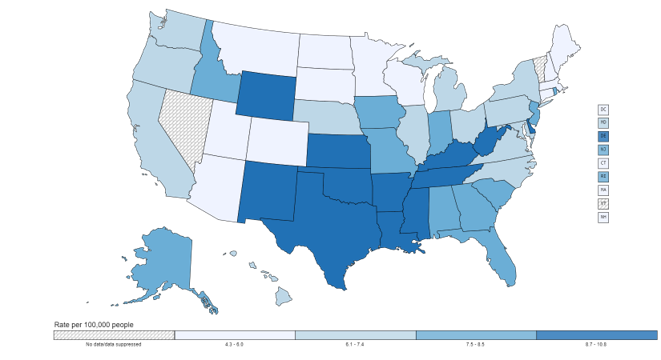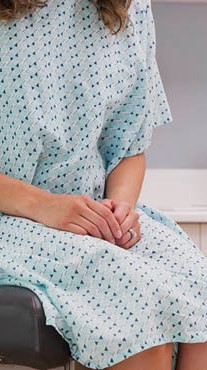CERVICAL CANCER AWARENESS MONTH
January is National Cervical Cancer Awareness Month
Cervical Cancer was once the leading cause of death in women in the US. The utilization of pap smears since the 40’s however, has resulted in a steep decline in the incidence and rate of deaths from cervical cancer¹.
Kentucky however, remains among the top 12 states in the US with the highest incidence of new cervical cancer diagnosis at a rate of 8.9 per 100k women, or 210 new diagnoses a year, 2018².

Regular screening and check-ups remain the best way to prevent and/or identify cervical cancer early.
When should I have a screening?
You should have your first pap screening test at age 21. If your results are normal, you can wait three years for your next screening if your doctor agrees.
At age 30 and older, you have three options…
- Continue getting a pap test only. If your results are normal, you can wait three years for your next test.
- Get an HPV test only. If your test result is normal, you can wait five years for your next test.
- Get both the HPV and Pap tests together. If your test results are normal, you can wait five years for your next tests.

HPV Vaccine
Almost all cervical cancers are caused by the human papillomavirus (HPV), a common virus that can be passed from one person to another during intercourse.
HPV is so common that most people get it at some point in their lives. For most women, HPV will go away on its own, but if it doesn’t, there is a chance that over time it may cause cervical cancer.

HPV Vaccination…not just for women and girls.
The HPV vaccine protects against the types of HPV that most often cause cervical cancers. HPV can also cause other types of cancer in both men and women.
- HPV vaccination is recommended for preteens aged 11-12 years.
- HPV vaccination is also recommended for everyone through the age of 26 years, if not already vaccinated.
- Some adults aged 26-45 years not already vaccinated should speak with their doctor about whether to get the HPV vaccine.
- Published: December 28, 2021
- Page reviewed/updated: April 5, 2023
Other Health Topics


